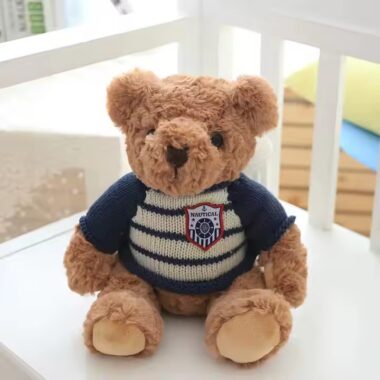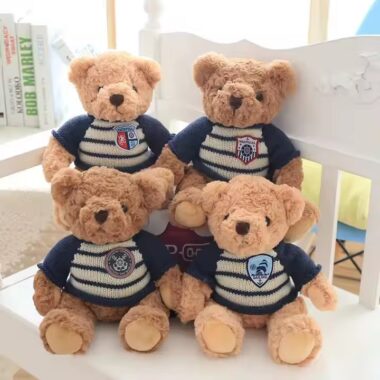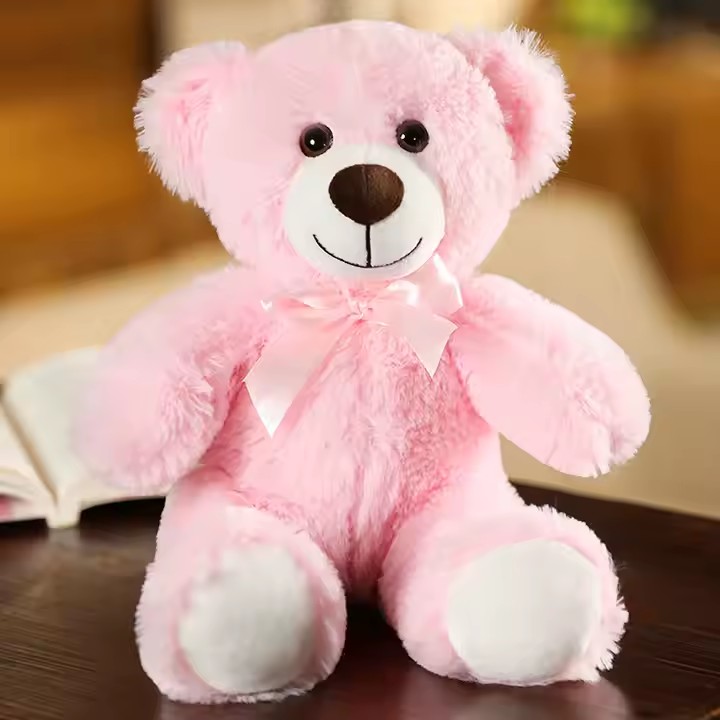Introduction
Behind every successful stuffed animal lies a factory with the right capabilities. From advanced sewing machines to skilled design teams, a professional stuffed animal factory transforms simple ideas into safe, high-quality products. For buyers, understanding these capabilities is critical when choosing a supplier who can deliver consistent quality at scale.
🖌️ Design and Development Support
Strong factory capabilities start with design. Many manufacturers have in-house designers who can convert sketches, photos, or brand mascots into 3D prototypes. This design stage ensures proportions, facial expressions, and branding elements are accurate before moving to production. Factories that provide CAD drawings or digital mockups help buyers visualize the final product and reduce costly revisions.
🧵 Sampling and Prototyping
Sampling is the bridge between design and mass production. A capable stuffed animal factory can create samples within 7–14 days, allowing buyers to check fabrics, fillings, embroidery, and accessories. The ability to produce accurate samples quickly shows both technical skill and operational efficiency. It also provides an opportunity to test branding options like embroidered logos, woven labels, or custom outfits.
⚙️ Production Equipment and Technology
Modern stuffed animal production relies on specialized equipment. Advanced sewing and embroidery machines ensure consistency, while cutting machines improve efficiency and precision. Stuffing machines guarantee even distribution of fillings, preventing lumps or uneven shapes. Factories with automated or semi-automated equipment can produce large wholesale orders faster and with fewer errors.
👷 Skilled Workforce
Machines alone cannot guarantee quality—skilled workers are equally important. Experienced sewing staff ensure seams are strong, while quality inspectors check details like stitching density, fabric alignment, and safety compliance. Many factories assign dedicated teams to specific product types, such as teddy bears, plush cushions, or keychains, improving efficiency and expertise.
🔍 Quality Control Systems
A hallmark of a professional manufacturer is strict quality control. QC begins with raw material inspection and continues through every stage of production. Finished products are tested for seam strength, colorfastness, and filling security. Many stuffed animal factories also provide third-party inspection reports to reassure international buyers.
📦 Packaging and Logistics Support
Beyond production, capable factories provide custom packaging and logistics services. Buyers can choose from polybags, printed boxes, or eco-friendly packaging options. Some suppliers also assist with export documentation, certifications, and shipping arrangements. This end-to-end service helps international buyers save time and reduces the risk of delays.
🌍 Compliance and Certifications
Global buyers often demand compliance with EN71, ASTM, or CPSIA standards. A factory with proper certifications can provide test reports, ensuring that stuffed animals meet legal requirements. Some suppliers also comply with ISO9001 or BSCI audits, reflecting their commitment to ethical and sustainable practices.
🤝 Long-Term Partnership Potential
Factory capabilities should not only meet your first order but also support your brand’s growth. A reliable stuffed animal factory offers flexible MOQs for startups and scalable production for larger brands. Establishing a long-term partnership means you can count on consistent quality, faster sampling, and better pricing over time.
Conclusion
Choosing the right factory is about more than just price—it’s about capabilities. From design and sampling to advanced equipment, skilled staff, and strict QC, these factors determine the quality of every stuffed animal. By working with a capable factory, brands can ensure reliable production, safe materials, and on-time delivery, building customer trust and strengthening global competitiveness.












